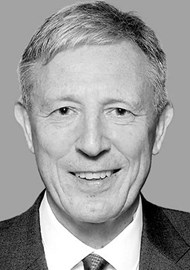Whistle blowing. What is it? Fascinating discussion with Chris Day, the Junior Doctor in the UK who is challenging the execution of the law in this sensitive area of employment contracts (http://54000doctors.org). More of that later, but just to note, what I am doing is not whistle blowing in that context of employment. What I am doing is whistle blowing in the context of being an impartial referee in a game that involves society and corruption. By the word ‘impartial’ I mean that I have no conflict of interest in the outcome of the ‘game’. I just want to ensure it is honest and fair.
So, to summarize the story so far.
- A girl’s brain was destroyed in a private surgeon’s clinic in Hong Kong.
- The surgeon had made a conscious decision regarding how he was going to equip his clinic.
- The surgeon had made a conscious decision about the procedures he was going to perform in his clinic.
- The surgeon made the deliberate choice of using a powerful intravenous narcotic agent to sedate his patients. He chose, however, not to have the emergency resuscitation equipment recommended by the manufacturer.
- The surgeon did not weigh his patient.
- The surgeon gave her an overdose of a local anaesthetic agent that has serious central / toxic complications.
- When the patient began to convulse the surgeon did not control the convulsion, despite having the appropriate medication in his clinic.
- The surgeon did not control the airway.
- The surgeon did not have the knowledge or the equipment to save the life of the patient.
- The surgeon has to be held accountable for her death.
This was no ‘misadventure’, this was gambling with the lives of patients. The fact that the actual victim would not have been pre-selected does not mean to say that the death was not pre-meditated. Using the ‘balance of probabilities’, so loved by our legal friends, would this not tend to favour a charge of murder rather than manslaughter?
But this is where things become more foul and distasteful. An inquest was opened with four doctors being questioned. All four needed legal representation. The inquest is there to establish the following:
- Identity of the deceased
- Place of death
- Time of death
- How the deceased came by his / her death.
This last point is of great relevance in the case of Zoey. Was the death natural or unnatural? Was it lawful or unlawful?
Blame is not an issue for the coroner. But fairness and truth are. So when it is clear that the coroner has been misdirected due to false and or misleading evidence from experts who have been engaged by the legal team defending the four doctors, then it is imperative to review the case and establish the truth. That means re-opening the inquest as is most curiously and presciently detailed by the new law firm whose senior partner oversaw the defence of the four doctors.
http://www.hwbhk.com/en/news/all-news/medico-legal-update-february-2012.html
The experts? One of them tried the ‘blinding by science’ approach, but the science was not appropriate. Indeed he writes pages of turgid text trying to explain away the findings of toxic levels of the drug several hours after administration. But then he says that nothing is certain about the pharmacokinetics of a drug when there have been periods of low systemic perfusion or cardiac massage (repeated trauma) in the infiltrated area. That is bad enough but then when he says the drug dosage was within recommended limits he is clearly contradicting himself as he gives those limits earlier. He also, tries to misrepresent the weight of the patient. This is not what is expected of a professor of medicine, at a local university. Or is it?
The other expert was even more evasive. He states that the clinic was adequately equipped for local anaesthetic procedures (no mention of IV sedation), the drug dosage was appropriate for a 50kg patients (but he did not say this was NOT the weight of the patient who died). He stated that it was not mandatory to weigh a patient if using a small amount of local anaesthetic, but he did not say it was mandatory to weigh a patient when using large volumes of local anaesthetic solution.
The reports were crafted and submitted with such short notice that the prosecution could not study them. Typical legal games, which bring the whole process of law into disrepute. And so we are impelled to look at who might be the architects of this corruption. Herein lies another fascinating story reflecting dreams and ambitions, money and power, in post-colonial Hong Kong: it is a tale of three law firms: Richards Butler, Reid Smith Richards Butler and Howse Williams Bowers.
We tread carefully, deal in only evidence based truths and if opinions are made they are done so ‘on the balance of probabilities’ (to be continued).




